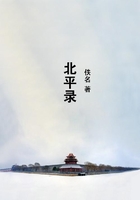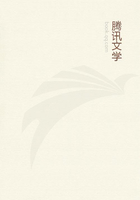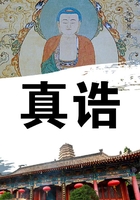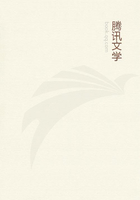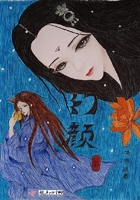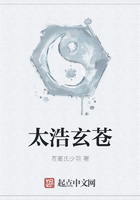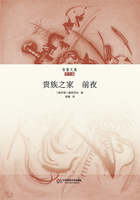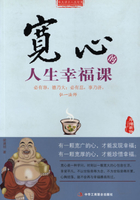132. A farther confirmation of our tenet may be drawn from the solution of Mr. Molyneux's problem, published by Mr. Locke in his Essay: which I shall set down as it there lies, together with Mr. Locke's opinion of it, '"Suppose a man born blind, and now adult, and taught by his touch to distinguish between a cube and a sphere of the same metal, and nighly [ sic ] of the same bigness, so as to tell, when he felt one and t'other, which is the cube and which the sphere. Suppose then the cube and sphere placed on a table, and the blind man to be made to see: quaere, whether by his sight, before he touched them, he could now distinguish and tell which is the globe, which the cube?" To which the acute and judicious proposer answers: "Not. For though he has obtained the experience of how a globe, how a cube, affects his touch, yet he has not yet attained the experience that what affects his touch so or so must affect his sight so or so: or that a protuberant angle in the cube that pressed his hand unequally shall appear to his eye as it doth in the cube." I agree with this thinking gentleman, whom I am proud to call my friend, in his answer to this his problem; and am of opinion that the blind man at first sight would not be able with certainty to say which was the globe, which the cube, whilst he only saw them.' (Essay on Human Understanding, B. ii. C. 9. S. 8.)133. Now, if a square surface perceived by touch be of the same sort with a square surface perceived by sight, it is certain the blind man here mentioned might know a square surface as soon as he saw it: it is no more but introducing into his mind by a new inlet an idea he has been already well acquainted with. Since, therefore, he is supposed to have known by his touch that a cube is a body terminated by square surfaces, and that a sphere is not terminated by square surfaces: upon the supposition that a visible and tangible square differ only in numero it follows that he might know, by the unerring mark of the square surfaces, which was the cube, and which not, while he only saw them. We must therefore allow either that visible extension and figures are specifically distinct from tangible extension and figures, or else that the solution of this problem given by those two thoughtful and ingenious men is wrong.
134. Much more might be laid together in proof of the proposition Ihave advanced: but what has been said is, if I mistake not, sufficient to convince anyone that shall yield a reasonable attention: and as for those that will not be at the pains of a little thought, no multiplication of words will ever suffice to make them understand the truth, or rightly conceive my meaning.
135. I cannot let go the above-mentioned problem without some reflexion on it. It hath been evident that a man blind from his birth would not, at first sight, denominate anything he saw by the names he had been used to appropriate to ideas of touch, vid. sect. 106. Cube, sphere, table are words he has known applied to things perceivable by touch, but to things perfectly intangible he never knew them applied. Those words in their wonted application always marked out to his mind bodies or solid things which were perceived by the resistance they gave: but there is no solidity, no resistance or protrusion, perceived by sight. In short, the ideas of sight are all new perceptions, to which there be no names annexed in his mind: he cannot therefore understand what is said to him concerning them: and to ask of the two bodies he saw placed on the table, which was the sphere, which the cube? were to him a question downright bantering and unintelligible; nothing he sees being able to suggest to his thoughts the idea of body, distance, or in general of anything he had already known.
136. It is a mistake to think the same thing affects both sight and touch. If the same angle or square which is the object of touch be also the object of vision, what should hinder the blind man at first sight from knowing it? For though the manner wherein it affects the sight be different from that wherein it affected his touch, yet, there being beside his manner or circumstance, which is new and unknown, the angle or figure, which is old and known, he cannot choose but discern it.
137. Visible figure and extension having been demonstrated to be of a nature entirely different and heterogeneous from tangible figure and extension, it remains that we inquire concerning. Now that visible motion is not of the same sort with tangible motion seems to need no farther proof, it being an evident corollary from what we have shewn concerning the difference there is between visible and tangible extension: but for a more full and express proof hereof we need only observe that one who had not yet experienced vision would not at first sight know motion. Whence it clearly follows that motion perceivable by sight is of a sort distinct from motion perceivable by touch. The antecedent I prove thus: by touch he could not perceive any motion but what was up or down, to the right or left, nearer or farther from him; besides these and their several varieties or complications, it is impossible he should have any idea of motion. He would not therefore think anything to be motion, or give the name motion to any idea which he could not range under some or other of those particular kinds thereof.
But from sect. 95 it is plain that by the mere act of vision he could not know motion upwards or downwards, to the right or left, or in any other possible direction. From which I conclude he would not know motion at all at first sight. As for the idea of motion in abstract, I shall not waste paper about it, but leave it to my reader to make the best he can of it.
To me it is perfectly unintelligible.
138. The consideration of motion may furnish a new field for inquiry:

